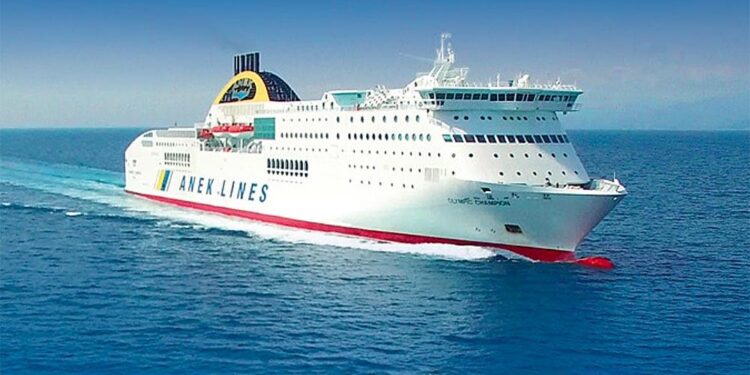Several Greece-Italy ferry routes remain halted as seafarers extend their ongoing strike, causing significant disruption to maritime traffic and passenger travel between the two countries. The industrial action, driven by unresolved labor disputes, has led to numerous vessels docking at ports and left thousands of travelers stranded. Authorities and companies continue negotiations in an effort to resolve the deadlock and resume services, as the economic and social impact of the strike deepens.
Greece Italy Ferry Services Halted Amidst Seafarers Strike Impacting Travel and Trade
The ongoing industrial action by seafarers has brought ferry operations between Greece and Italy to a complete standstill, severely disrupting passenger travel and commercial freight routes. The strike, now extended indefinitely, reflects mounting grievances over wage disputes, working conditions, and job security amid rising operational costs in the maritime sector. Ports in key hubs like Patras, Ancona, and Bari have reported an accumulation of idle vessels, while travelers face canceled journeys and mounting uncertainties during the peak travel season.
Economic repercussions are also surfacing as vital trade channels are blocked, causing delays in the delivery of goods ranging from perishable food items to industrial components. Shipping companies and local businesses are grappling with losses, urging urgent negotiations to resolve the impasse. The table below highlights some of the most affected routes and their typical weekly schedules before the strike’s escalation:
| Route | Weekly Departures | Average Crossing Time | Freight Volume (Weekly) |
|---|---|---|---|
| Patras – Ancona | 7 | 22 hours | 1,200 TEUs |
| Igoumenitsa – Bari | 5 | 16 hours | 800 TEUs |
| Corfu – Brindisi | 3 | 1.5 hours | 450 TEUs |
- Travelers: Advised to seek alternative routes or delay non-essential trips.
- Freight operators: Report logistical bottlenecks and explore inland alternatives.
- Authorities: Monitoring the situation closely with calls for swift conflict resolution.
Economic and Tourism Sectors Brace for Prolonged Disruptions Due to Maritime Labor Disputes
The ongoing strike by seafarers operating the Greece-Italy ferry routes has sent shockwaves through both nations’ economic and tourism sectors. The extended halt in maritime services is disrupting supply chains, delaying the transport of goods, and creating uncertainty for businesses reliant on timely deliveries. Particularly affected are small and medium-sized enterprises in port cities, which depend heavily on ferry logistics to sustain their operations. The labor dispute remains unresolved as negotiations between maritime unions and shipping companies stall, raising concerns that this disruption could extend well into the peak travel season.
Key sectors facing immediate challenges include:
- Tourism operators experiencing cancellations and reduced bookings
- Exporters and importers confronting shipment delays
- Hospitality businesses facing declining foot traffic
- Local economies in ferry-dependent regions seeing revenue drops
| Sector | Impact | Duration Risk |
|---|---|---|
| Tourism | Bookings down 30% | Weeks to months |
| Logistics | Shipment delays up to 5 days | Undetermined |
| Local Businesses | Revenue losses reported | Immediate |
Calls for Government Intervention and Negotiations Intensify to Resolve Ferry Strike Swiftly
As the ferry workers’ strike persists, pressure mounts on government officials to step in and facilitate urgent dialogue between the involved parties. Industry leaders and local businesses reliant on maritime transport have united in demanding swift action to prevent further economic disruption, emphasizing the broader implications for passenger travel and freight movement in the region. Lawmakers across both Greece and Italy are reportedly preparing to convene emergency talks aimed at reaching a compromise that respects the seafarers’ rights while reinstating essential ferry services.
Meanwhile, unions involved in the strike have reiterated their commitment to ongoing negotiations but insist that any resolution must address critical issues such as wage adjustments, improved working conditions, and job security guarantees. Stakeholders highlight the need for a balanced approach, urging the government to champion a fair settlement that recognizes the pivotal role of seafarers in maintaining a vital transportation link. Below is a summary of key demands and proposed government actions under consideration:
| Seafarers’ Demands | Proposed Government Measures |
|---|---|
| Salary Increase | Establish wage review committee within 30 days |
| Enhanced Safety Protocols | Launch vessel inspections and safety audits |
| Job Security | Implement contract protection legislation |
| Reduced Working Hours | Assess feasibility in upcoming maritime labor talks |
Concluding Remarks
As the seafarers’ strike shows no signs of abating, ferry services between Greece and Italy remain suspended, leaving passengers and freight operators facing growing uncertainty. Authorities continue to urge both sides to reach a prompt resolution to mitigate the economic impact and restore crucial transport links. Updates will follow as the situation develops.
















